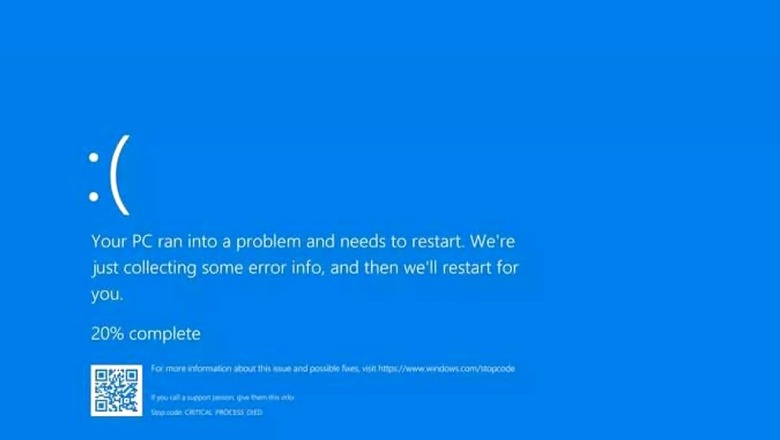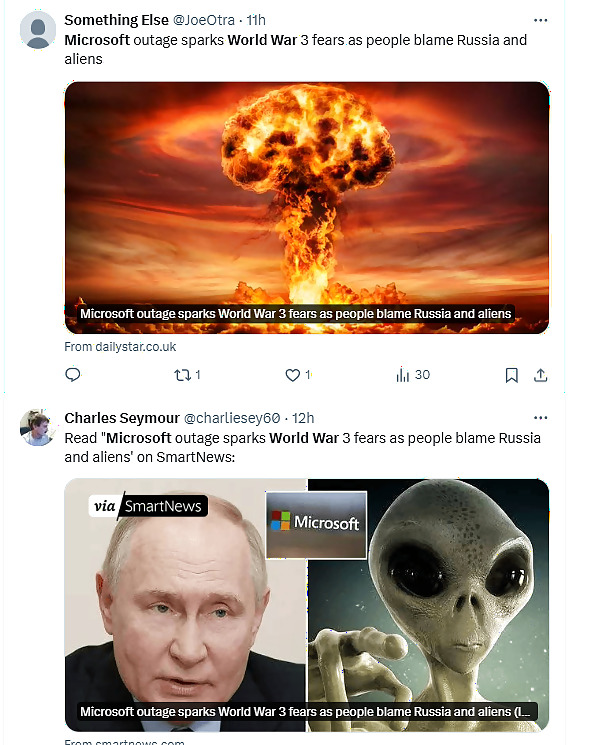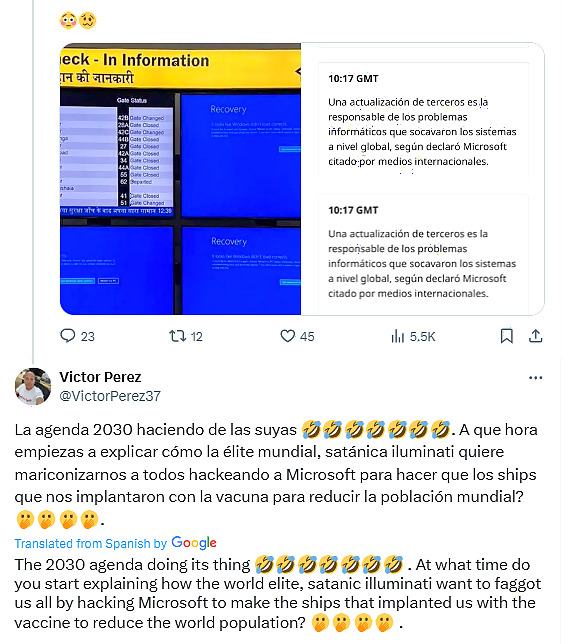
views
After a global IT crash on Friday, a wave of online conspiracy theories surged, ranging from fears of an impending “World War III” to unfounded claims tying a cabal of global elites to a cyberattack.
Airlines, banks, TV channels, and financial institutions grappled with turmoil stemming from a major software update glitch in a Microsoft Windows antivirus program. The global outage, which brought myriad aspects of daily life to a standstill and sent US stocks falling.
‘World War III’
The surge of these theories on social media platforms highlighted a post-event information landscape increasingly susceptible to misinformation, as platforms struggle to manage the spread without their former safeguards. The outage gave way to a swirl of apocalyptic posts. “I read somewhere once that ww3 (World War III) would be mostly a cyber war,” one user wrote on X.


‘Unfounded theory’
The IT crash also stirred up an unfounded theory that the World Economic Forum — long a magnet for wild falsehoods — had plotted a global cyberattack. To make that theory appear credible, many posts linked an old WEF video that warned about the possibility of a “cyberattack with Covid-like characteristics.”
The video, available on the WEF’s website, had cautioned that the only way to stop the exponential spread of the cyber threat would be to disconnect millions of vulnerable devices from each other and the internet. The WEF has long been a target for conspiracy theorists pushing the idea of a shadowy cabal of elites working for private gain under the garb of solving global issues.
BREAKING: American Airlines, United and Delta have asked the FAA for global ground stop on all flights, according to an alert from the FAA on Friday morning. The alert did not specify that it was tied to the Microsoft issues. The ground stop comes after a software outage linked… pic.twitter.com/5G2zt2BSFg— World War 3 (@Worldwar_3_) July 19, 2024
Cyber polygon?
Also gaining rapid traction online were conspiratorial posts using the hashtag “cyber polygon,” a reference to a global training event aimed at preparing for potential future attacks. “The proliferation of conspiracy theories in the wake of major global events such as the outage is a sad testament to the volatile nature of the information ecosystem,” Rafi Mendelsohn, vice president at the disinformation security company Cyabra, told AFP.
“What is unique to events like these is how social media platforms, forums, and messaging apps facilitate the rapid dissemination of content, allowing theories to gain traction quickly and reach a global audience.” The trend demonstrates the ability of falsehoods to mutate into viral narratives on tech platforms, which have scaled back content moderation and reinstated accounts that are known purveyors of misinformation.
During fast-developing news events, confusion now often reigns on major tech platforms, with users scrambling to obtain accurate information in what appears to be a sea of false or misleading posts that rapidly gain traction. “This poses the larger question of combatting mis- and disinformation,” Michael W. Mosser, executive director of the Global Disinformation Lab at the University of Texas at Austin, told AFP.
(With agency inputs)




















Comments
0 comment